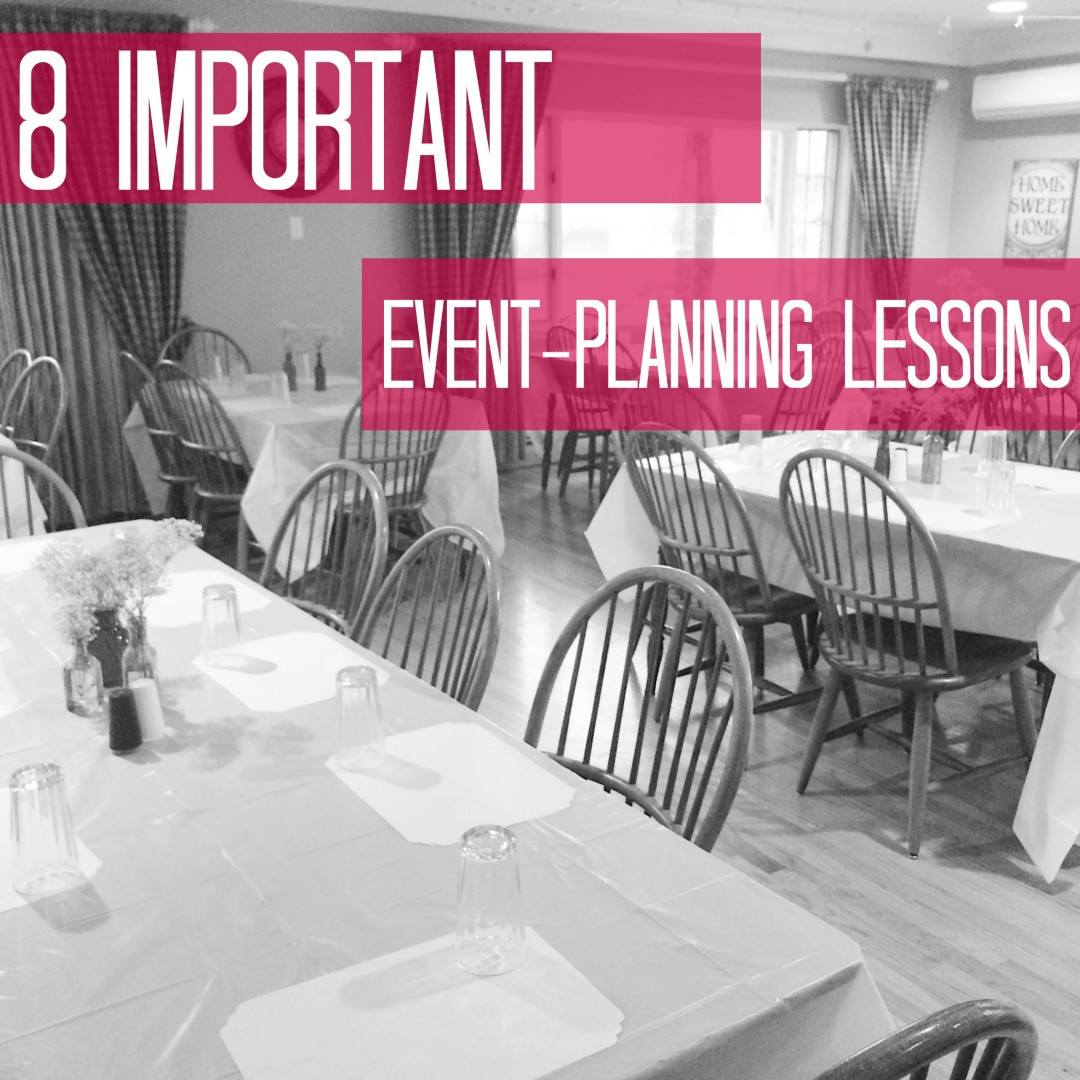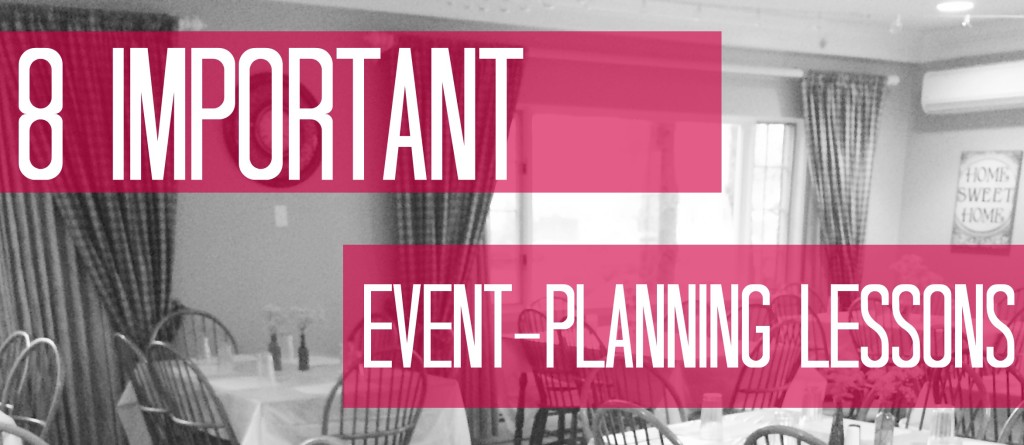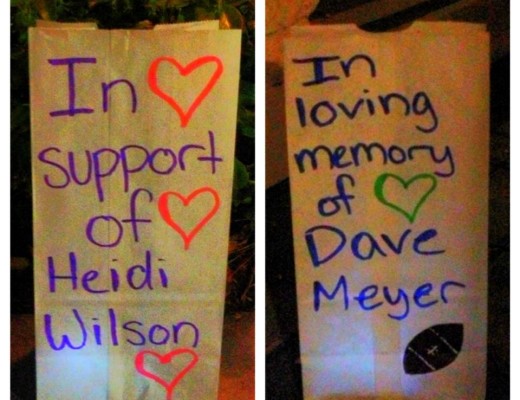For those of you who don’t know, the past two months have been absolutely insane for me. I organized my sorority’s annual Mom’s Weekend brunch and auction, got a new job, and wrapped up the semester. That’s right – I am officially a senior! I am so sorry for being completely M.I.A., but hopefully I can make up for that this summer when I have more free time to blog.
I learned so much from my experience planning the brunch and auction for my sorority. I had never been to the event before, so I had no idea what it was even supposed to be like. On a very tight budget, I had to be very frugal and creative. One of the most stressful experiences of my life, it was also one of the most rewarding – we raised over $6,000! Anyways, I wanted to share the eight most valuable lessons I learned from this process with y’all in case you have an event coming up soon.
1. You can’t please everybody
There will always be somebody with something negative to say. No matter how much audience research you have conducted and how much time you have put in to accommodating everybody’s needs, there will always be somebody. It’s a sad fact, but it’s the way it goes with most things in life. Everything could be going 100% smoothly but somebody will find that one napkin out of place.
People will always find something to complain about unfortunately. It most likely will be something completely out of your control – maybe a vendor was rude to them or more expensive than then had hoped.
When this happens, you have to just smile, apologize, and help them the best you can. When you are in the swing of the event, there is usually not much you can do for them, so you just need to be kind and gracious.
2. There will always be surprises
No matter how much meticulous planning you invest, something unexpected will always happen. For example, I planned a Mom’s Weekend brunch for my sorority and requested RSVP’s to plan how much food to make. Only 200 RSVP’ed, yet over 300 people showed up on the actual day. There was no possible way I could have planned for this.
When these surprises threaten to throw a wrench in your plans, just remember that they are ultimately out of your control. All you can do is adapt – be flexible as much as possible.
3. Have a plan for more AND less people than expected
Leading off of my last point, you should always have a plan for what will happen if more or less people than expected attend the event. For example, have extra chairs or a standing room only section designated to accommodate more people. If significantly less people show up than anticipated, have a plan for the left-over food/materials/space/etc.
4. Plan for any weather
If your event is outside (especially here in the Pacific Northwest), definitely have a back-up plan for rain. Whether it is an indoor venue or tents, you need to prepare for the unexpected. Weather is a silly thing that is nearly impossible to accurately predict and has the potential to destroy an event.
5. Be flexible
I really cannot stress this point enough. With all of the points I noted above, the common trend in all of them is the necessity of flexibility. You can invest hundreds of hours planning an event, but the actual event can only happen once. Just like the weather – there is nothing you can do to predict exactly how the event will flow. You need to prepare yourself to quickly adapt to change.
You may have planned a particular aspect of the event that ends up simply not working. You will need to quickly let go of your disappointment and make a change to remedy it. It’s really difficult, trust me, but necessary.
6. Delegate, delegate, delegate
You may be superwoman, but you cannot plan an event all on your own. You need to have a trustworthy and hard-working team supporting you. Having an extra set of eyes on a floor plan or invitation can make a world of a difference. Having extra hands to help you move tables and place decorations will save you from a lot of the set-up and take-down labor.
Personally, I am a control freak. I find it extremely difficult to trust anybody to do anything – to make sure it’s perfect, I’d rather just take some more time and do it myself. Unfortunately, the world does not always work that way. With event planning, you really have to relinquish some control and trust your team to do things. You cannot be everywhere at once as much as you may want to be.
7. Be gracious
When something goes wrong or some grouchy guest has a complaint, your response is crucial. You can either get offended, upset, panicked, and defensive, or you can smile and tackle the issue head-on. You cannot take things personally. Say “sorry” even if you’re not to blame. If you are rude to a guest, it will ruin the entire event for them. You must be gracious to everybody, despite your frustration or stress.
8. BREATHE
As far as most people know, your event is going perfectly. An issue that may seem very big to you could go completely unnoticed by attendees. If you behave calm, cool, collected, and confident (even if it’s all a lie), people will believe that you have everything under control.
At the end of the day, a broken plate or a long line or a longer-than-planned speech will not ruin your event. Trust in yourself in the hard work you put into planning this event. You did everything you possibly could to make it perfect. If things go wrong, that is just the way it goes. Be proud of your incredible creation!
- My mom and I at my sorority’s Mom’s Weekend brunch and auction that I organized
- Despite the stress, I still was able to have fun with my momma






